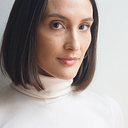Member-only story
This Anxiety Will Change Us
It all comes down to the science of fear
Maybe at this point, fear isn’t the dominant emotion people would name for the experience of coronavirus. Its horror has been rendered banal by prolonged exposure. After weeks of cycling through the Groundhog Day effect of quarantine time, “irritated” might seem a more apt descriptor for the present vibe than “scared.” That is, until we dig a little deeper.
In practice, acclimation does little to soften the cascade of unknowns. And that’s when fear comes flooding back. How much longer will this last, and how much more can we take? Will people we love get sick when social distancing orders begin to loosen? As the uncertainties pile, anxiety blooms. And the author and science journalist, Eva Holland is paying close attention.
In her new book, Nerve: A Personal Journey Through the Science of Fear, Holland weaves exhaustive science reporting, research, and her own trauma and fear to unpack the ways fear and anxiety shape us. Forge caught up with Holland to learn about how this surreal moment might be changing us — and how we might come out of it with better tools for survival.
Forge: How are fear and anxiety different?
Holland: So, the classic distinction is that fear is a response to a clear and present threat, like an objective…

